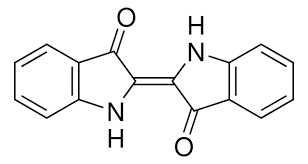Indigo Blue

Product Description
Indigo Blue, also known as indigo dye, is a naturally occurring organic compound with a rich blue color, widely used in various industrial applications.
Product:
Indigo Blue
CAS:
482-89-3
Synonym:
Indigo dye; Indigotin
Structure:

Typical Characteristics
Appearance
Dark blue to violet powder
Density
1.35 g/cm3
Melting point
>300 °C
Molecular Weight
262.26
Purity
95%
Refractive index
1.618-1.643
Uses, Applications & Markets
Key applications
get a quote



Indigo Blue used in many
industry applications
Indigo Blue, also known as indigo dye, is a naturally occurring organic compound with a rich blue color, widely used in various industrial applications. Here's a list of some of its industrial uses:
- Textile Industry: Indigo Blue is predominantly used in the textile industry for dyeing fabrics, especially denim. It is the primary dye for producing blue jeans and other denim products, providing a distinctive and long-lasting color.
- Printing Inks: It is used in the formulation of printing inks for various applications, including textiles, packaging, and paper products, offering vibrant and stable blue hues.
- Food Coloring: Indigo Blue is used as a food colorant in some regions, providing a natural blue color for various food and beverage products.
- Cosmetics: It is used in the cosmetic industry for coloring products such as eyeshadows, eyeliners, and other makeup items, providing rich blue tones.
- Plastics: Indigo Blue is used as a colorant in the plastics industry, imparting a deep blue color to plastic products and packaging materials.
- Paper Industry: It is used in the paper industry for dyeing and coloring paper products, providing stable and vivid blue shades.
- Pharmaceuticals: Indigo Blue is sometimes used in pharmaceuticals as a colorant for capsules, tablets, and liquid medicines, ensuring consistent and recognizable product appearance.
- Art and Craft: It is used in art and craft materials, such as paints, dyes, and pigments, offering artists and crafters a natural and historically significant blue color.
- Leather Industry: Indigo Blue is used for dyeing leather goods, including shoes, bags, and jackets, providing a durable and attractive blue color.
- Ceramics and Pottery: It is used in the ceramics industry for coloring glazes and ceramic products, providing stable and vibrant blue hues.
- Historical and Cultural Uses: Indigo Blue has been historically used in various cultural and traditional practices, including fabric dyeing and art, owing to its natural origin and cultural significance.